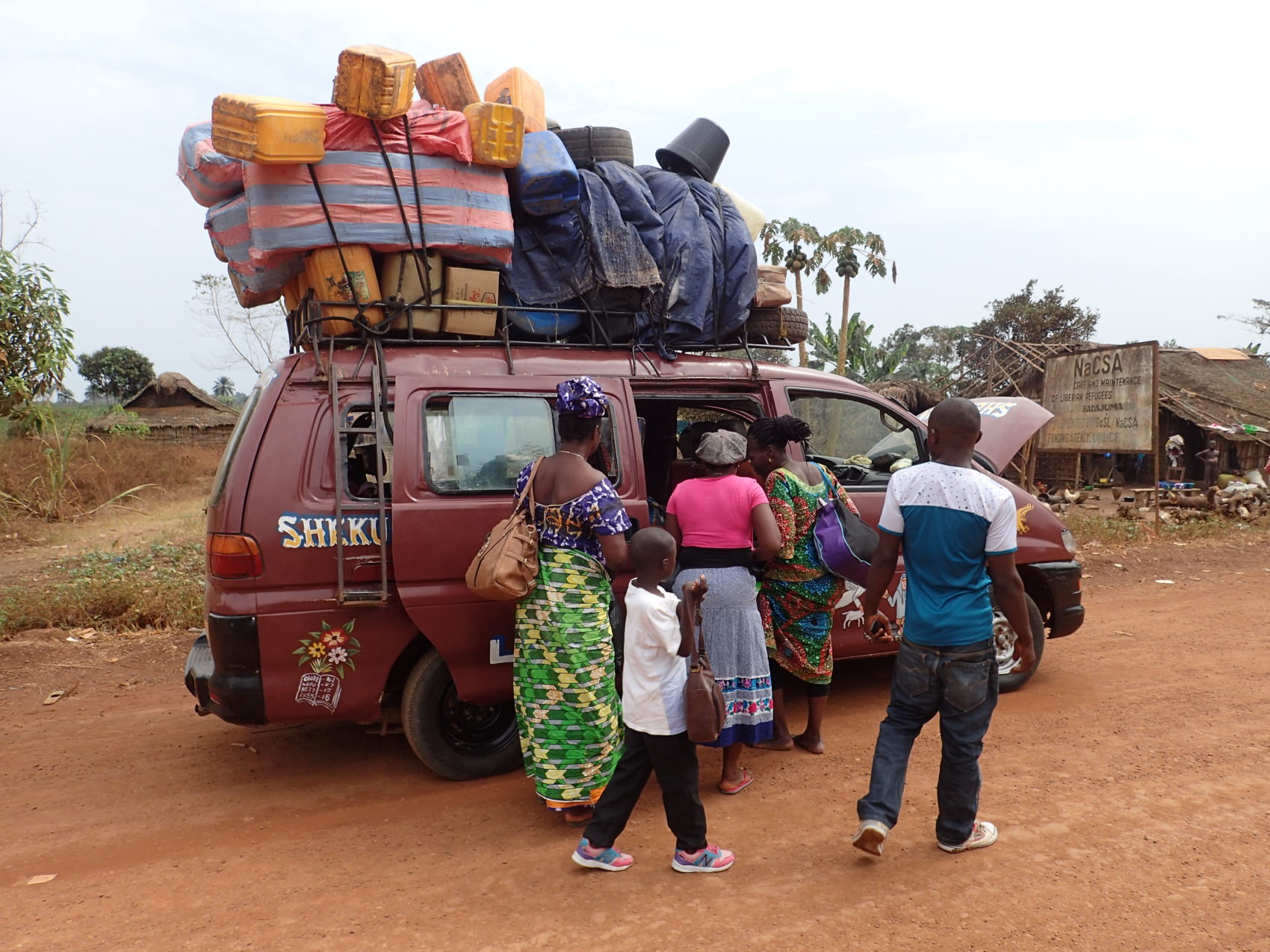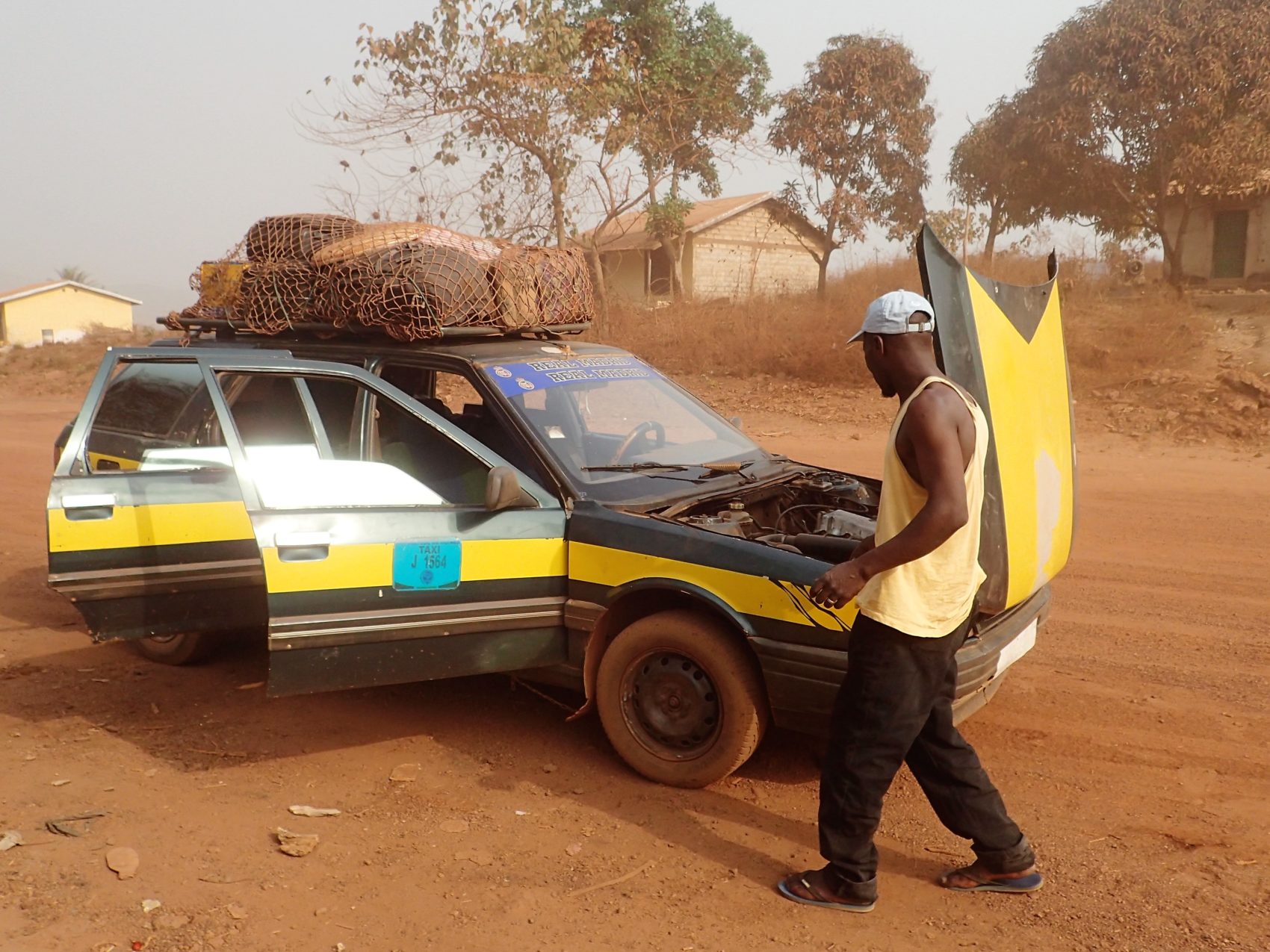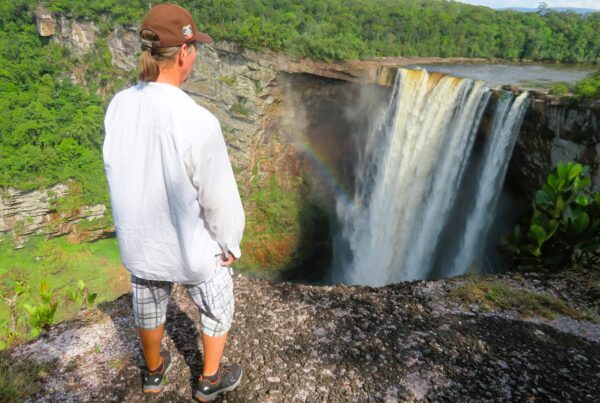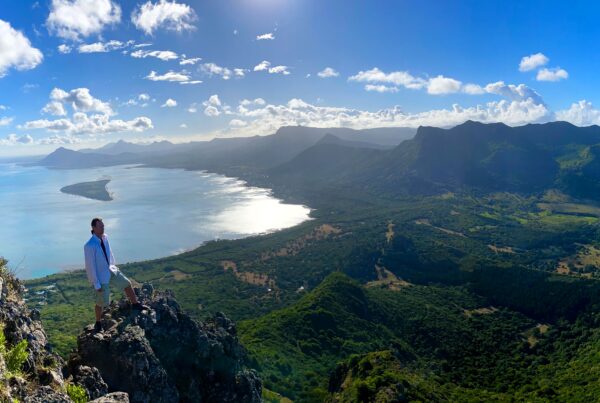“West Africans impressed me with their grit and hustle.”
Taxi driver Tupee pointed to Samuel Doe’s face on a Liberian fifty-dollar bill and said, “This man was a murderer, he caused the war. When the war ended it took two years to get rid of all the guns. The government paid three-hundred dollars for an AK-47 and fifty-dollars for a pistol.”
Tupee survived Liberia’s civil war—more than one hundred fifty thousand people didn’t—and now he drives a taxi in Monrovia. “I get up every morning at four-thirty to wash this car. See how clean the doors are?” The doors were indeed spotless, Sis.
Everywhere I went in West Africa there were hard working people like Tupee scratching out a living. Tupee offered a fair price to take me to the red-light-market taxi stand where I’d catch a bush-taxi to Gbarnga. “We’ll reach red-light-market in twelve minutes.” He didn’t say in a few minutes, or soon. Exactly twelve minutes.
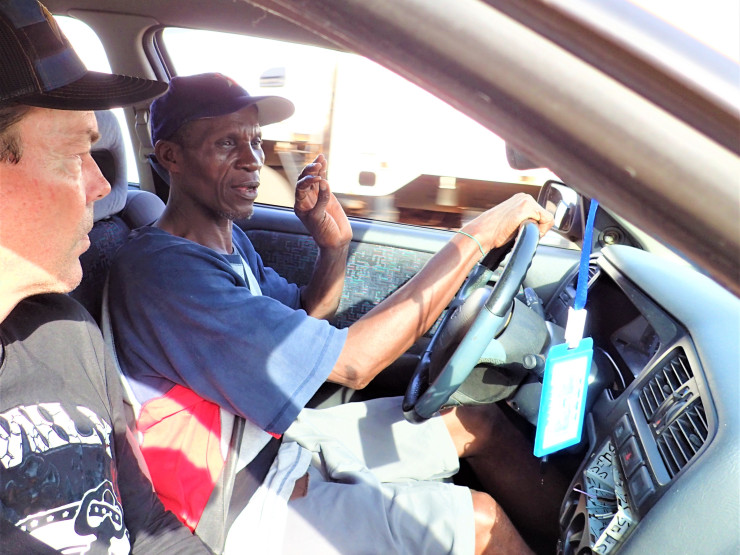
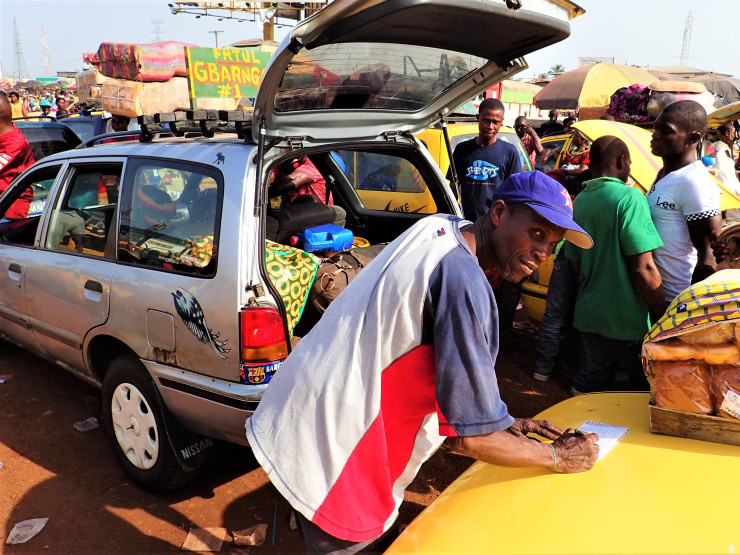
After the war the Liberian government relocated people back to their villages. “If you were from Bong, they’d take you to Bong, if you were from Buchanan, they’d take you to Buchanan. They gave everyone rice, beans, and flour.”
Tupee cupped his hand to his mouth imitating a megaphone.
“Come out, come out, it’s safe to come out. The war is over.”
We arrived at the market in twelve minutes. “Do you have someone here to contact in case you have any trouble?” Tupee gave me his name and number then wrote down my next bush-taxi’s license number.
An honest taxi driver that gives free history lessons—with surround-sound audio—and also looks out for your personal safety? That’s special, Kim.
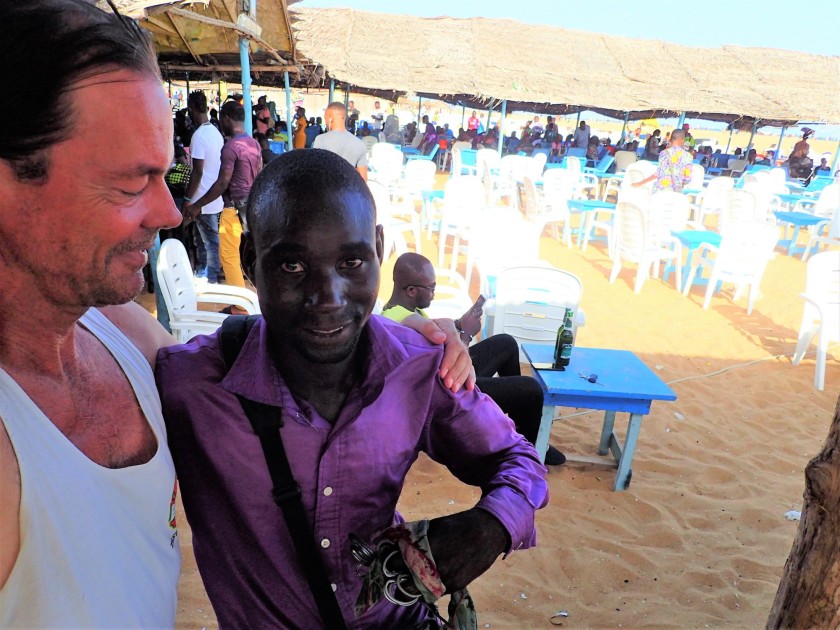
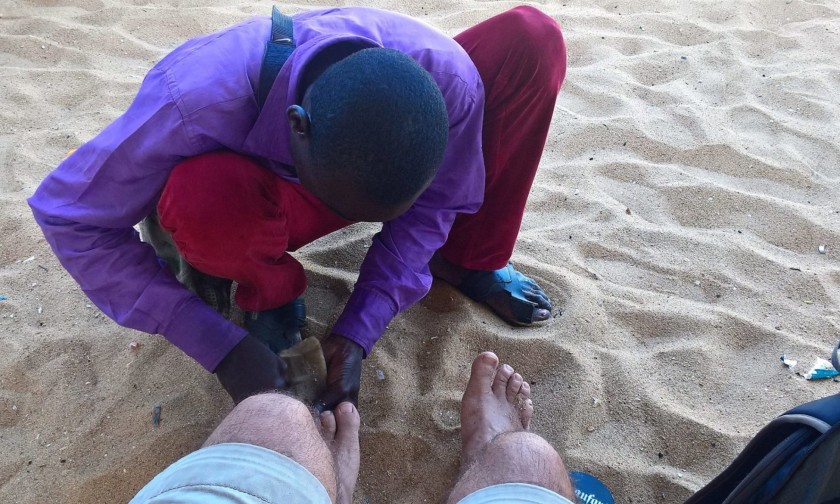
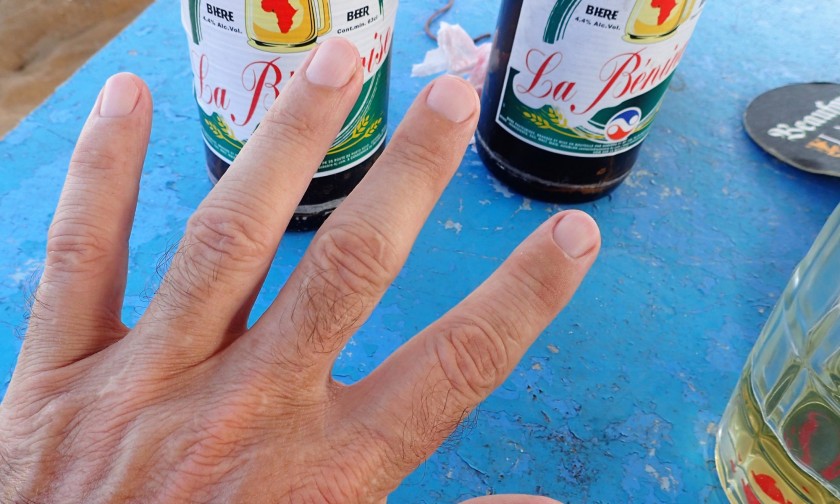
Mobile mani-pedi guys roam the beachside restaurants in Cotonou, Benin and trim you up for seventeen cents—less than a penny per nail! They take less than five minutes and charge one hundred West African francs. This is the best service in the world for lazy people whose nails get creepy long. Like, moi.
“West African street vendors make you productive while sitting on your butt drinking beer.”
My go-to meal in West Africa was a sandwich. Most taxi stands and markets had at least one woman making sandwiches that usually included fried eggs. Pointing to ingredients always worked if there was a language barrier. Before a long ride I’d stock up on a couple sandwiches; one for lunch and one for dinner. Sandwich ladies made my life easier and brought a smile to my face.
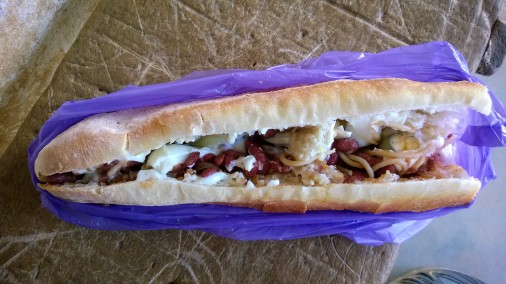
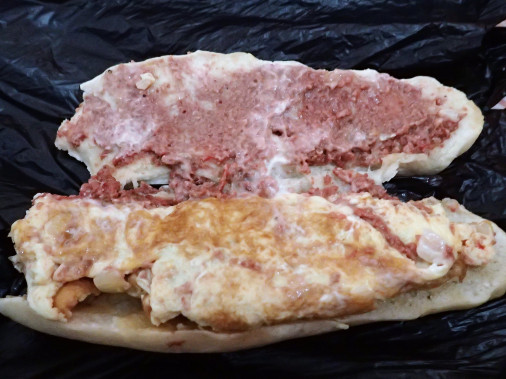
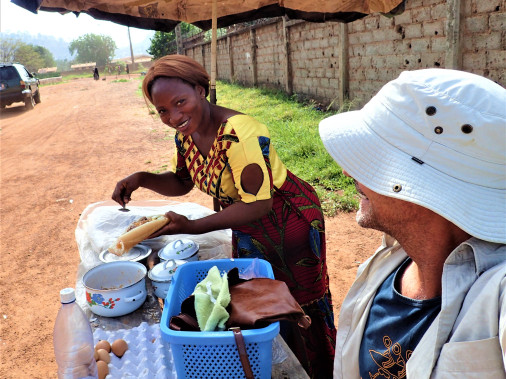
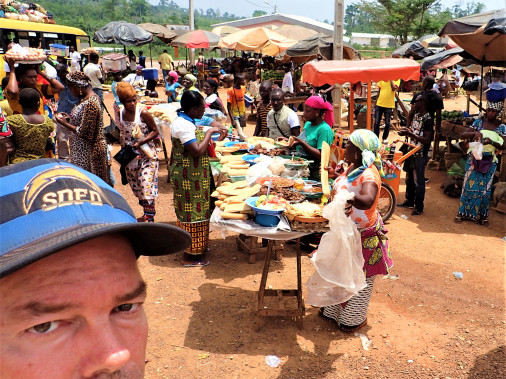
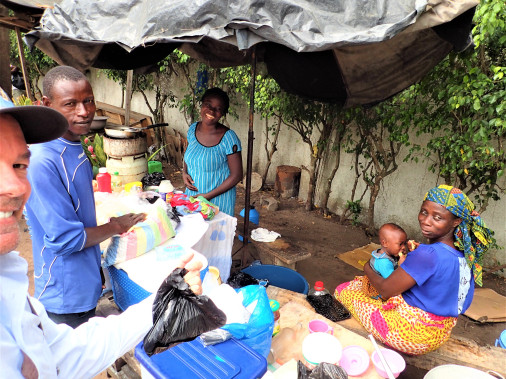
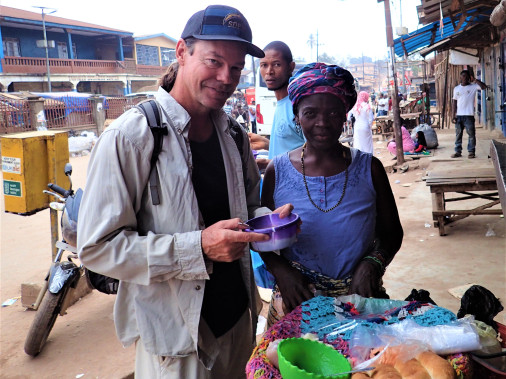
Barbeque boys made me smile, too. The quality of meat varied, but BBQ stands were my source for cheap protein in West Africa. Chicken or beef with a baguette, add avo and mayo, and I’m a happy camper, Sis.
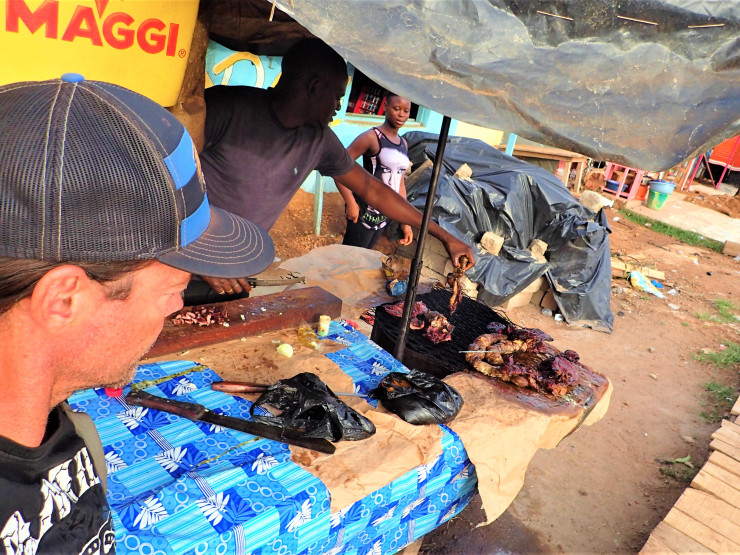
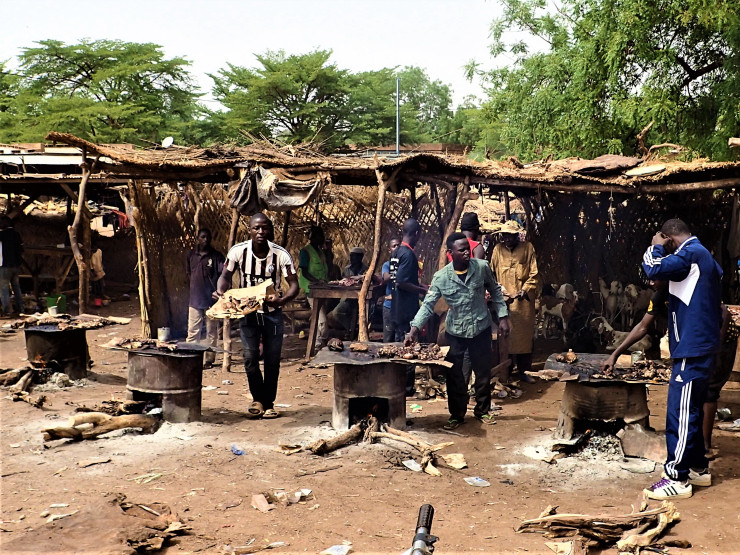
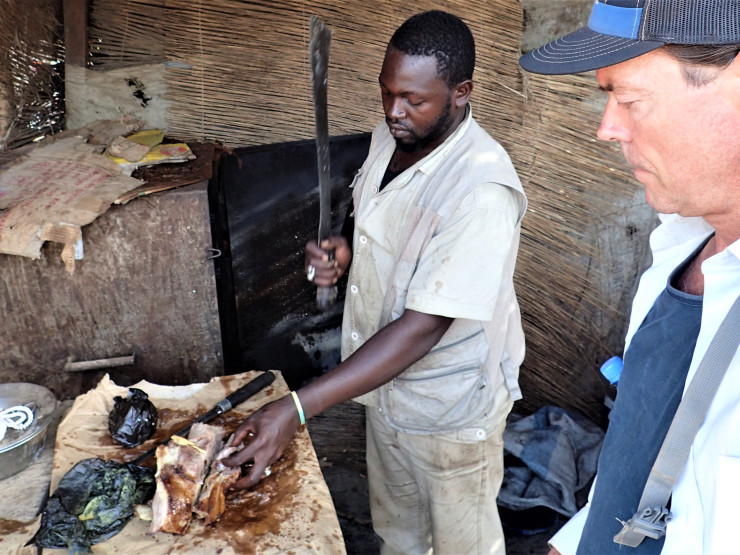
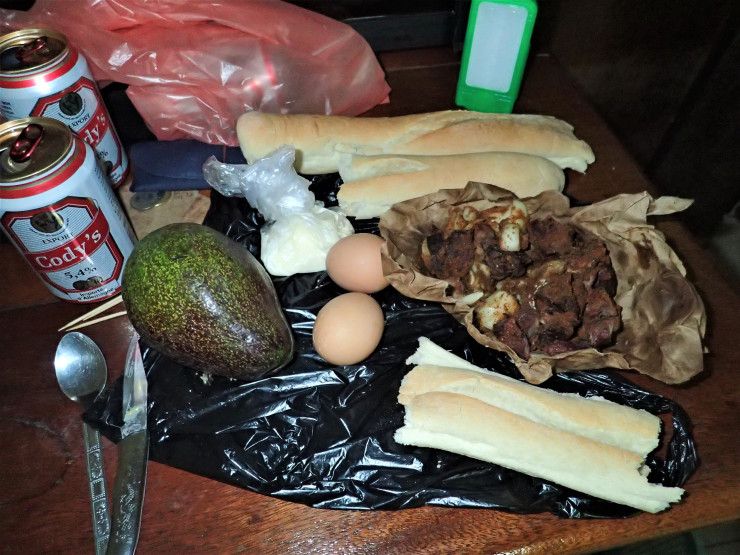
Pastor Solomon is Nigerian but he preaches Christianity in poorest-of-the-poor Guinea-Bissau, where most people are Muslim. Pastor Solomon has thirty five siblings—three of them living in the United States—so his faith and dedication belong in the Disciple Hall of Fame.
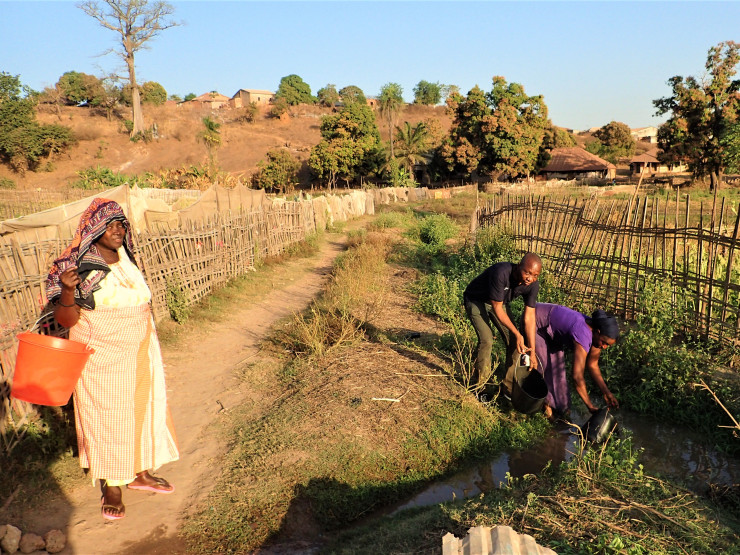
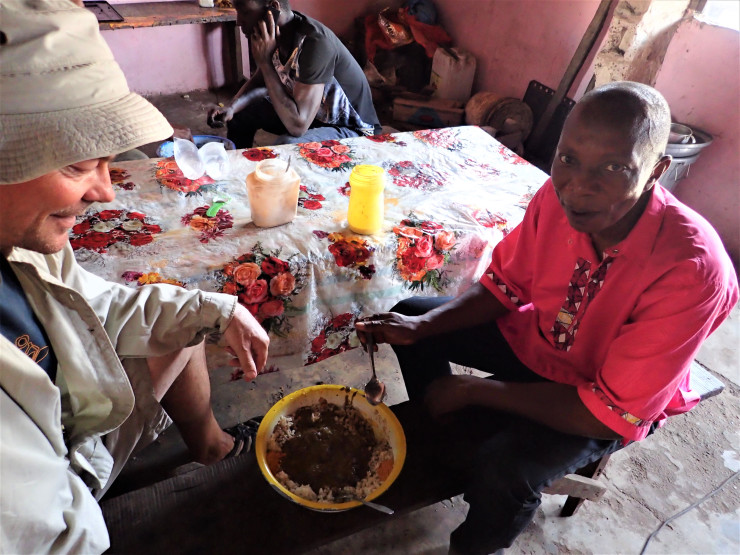
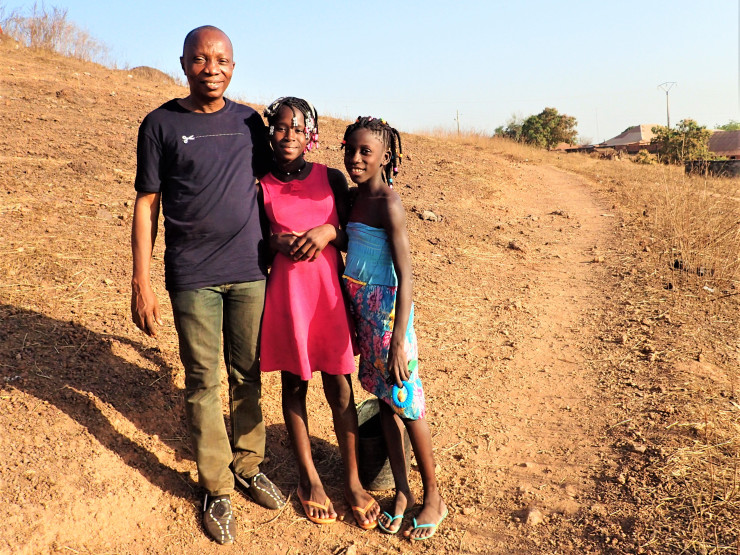
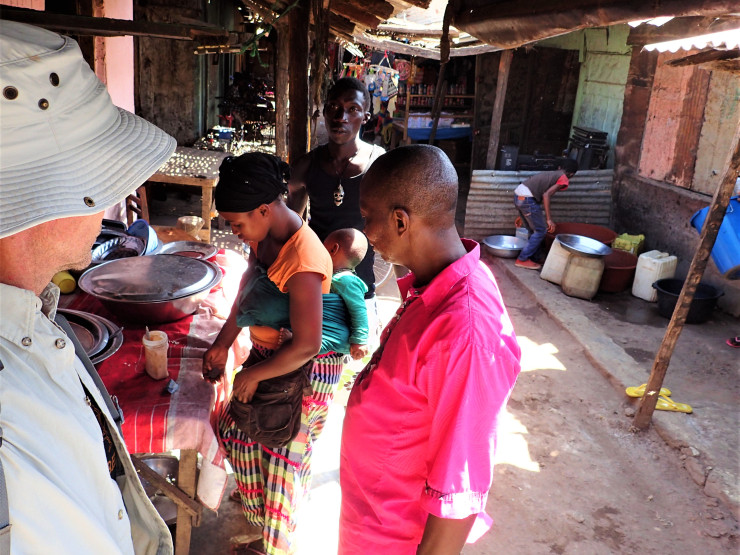
Bush taxi drivers do it all; load and unload luggage, drive the whole day on roads with more potholes than pavement, repair their ancient vehicles, and fight off police extortion just to make a few bucks.
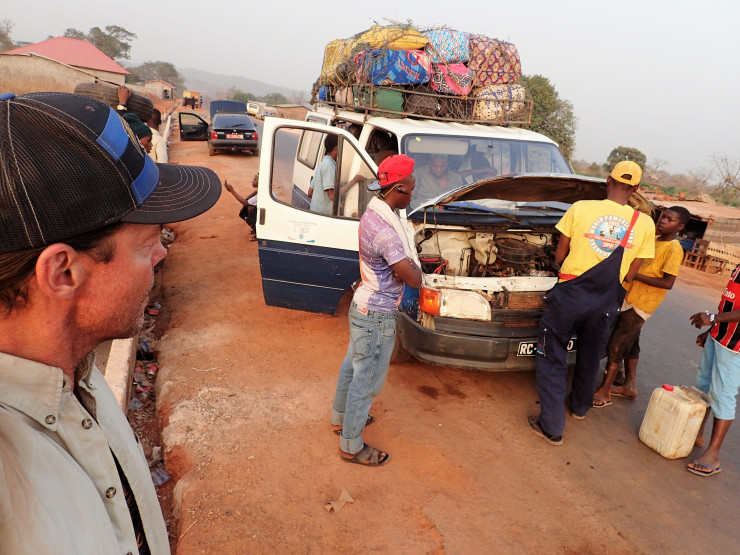
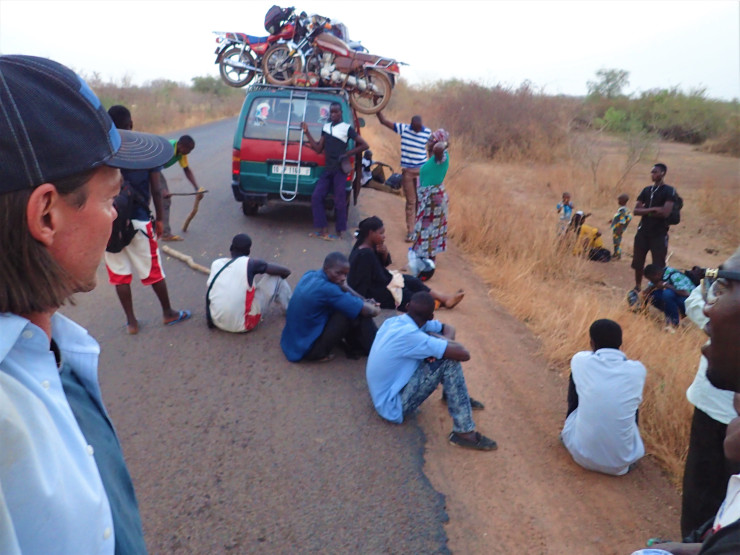
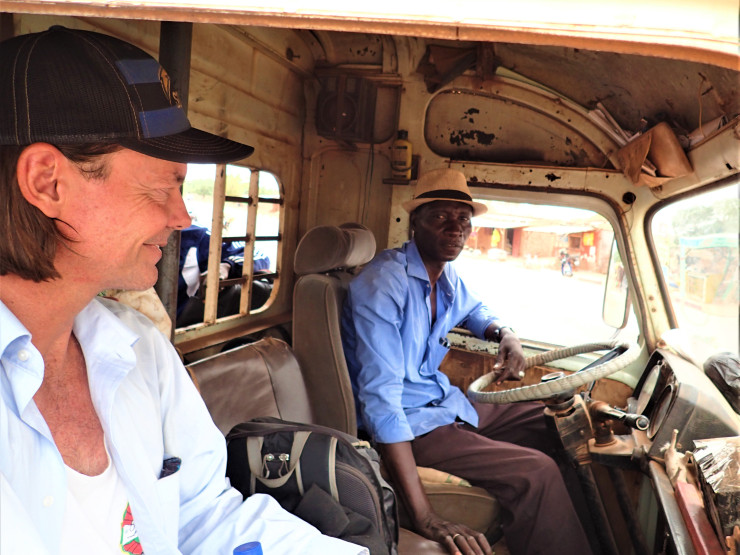
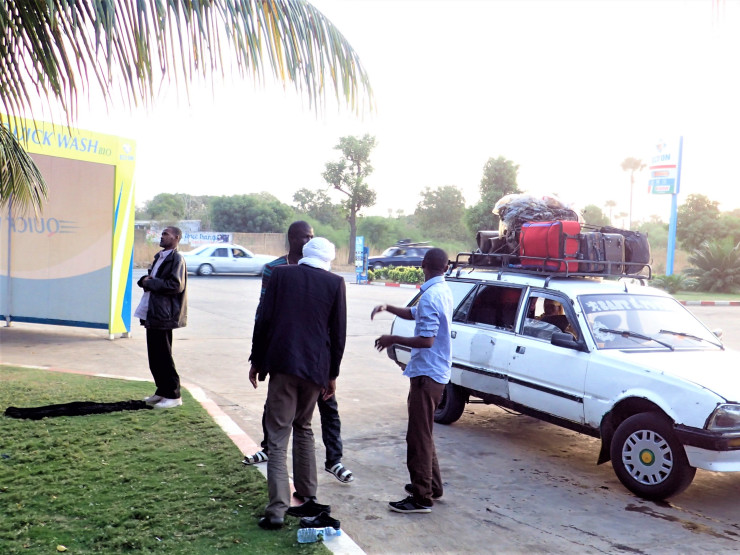
West African women kick ass, they’re the hardest working of all. Carrying firewood on their heads, fetching buckets of water, pounding millet and then cooking it, all with babies strapped on their back. I was exhausted just watching them.
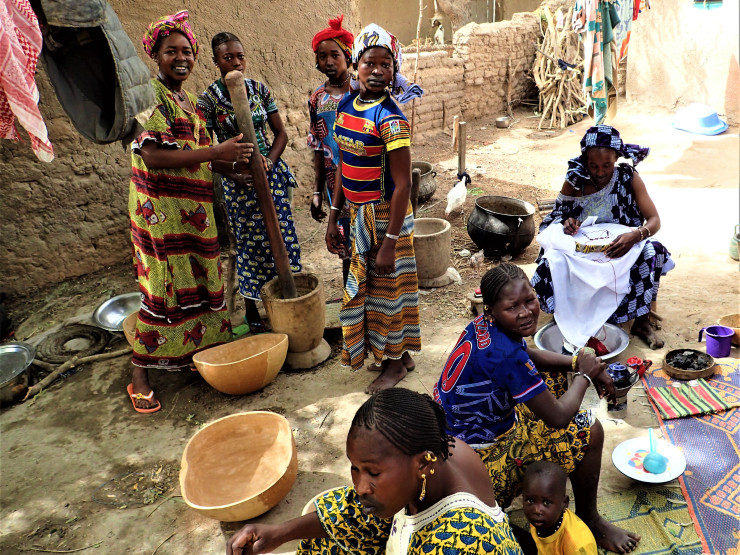
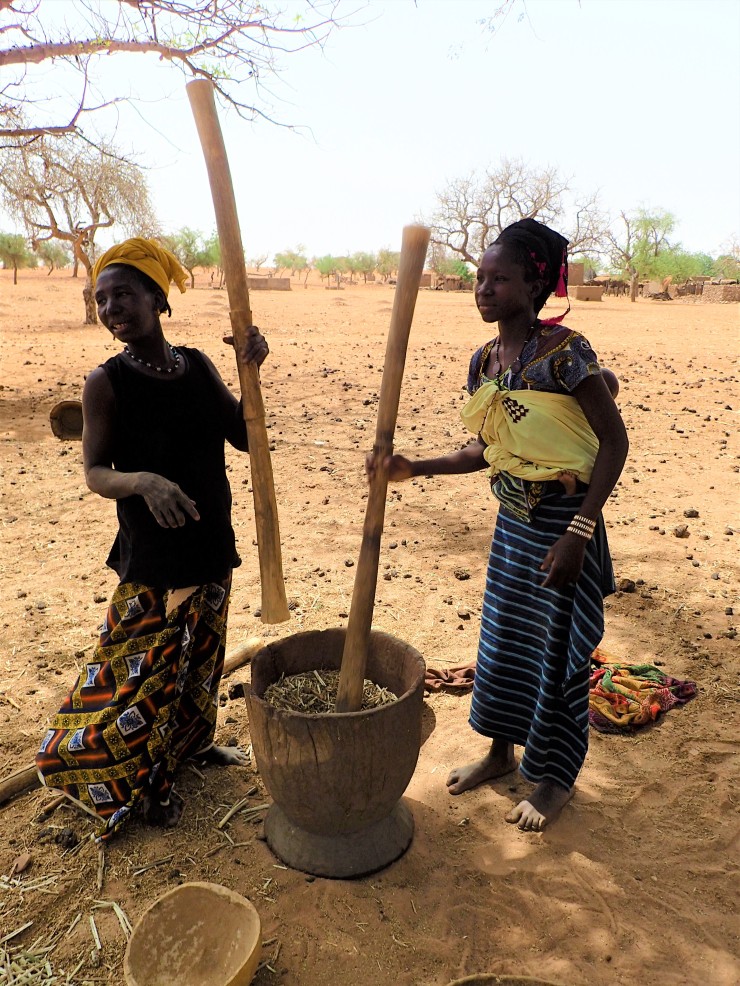
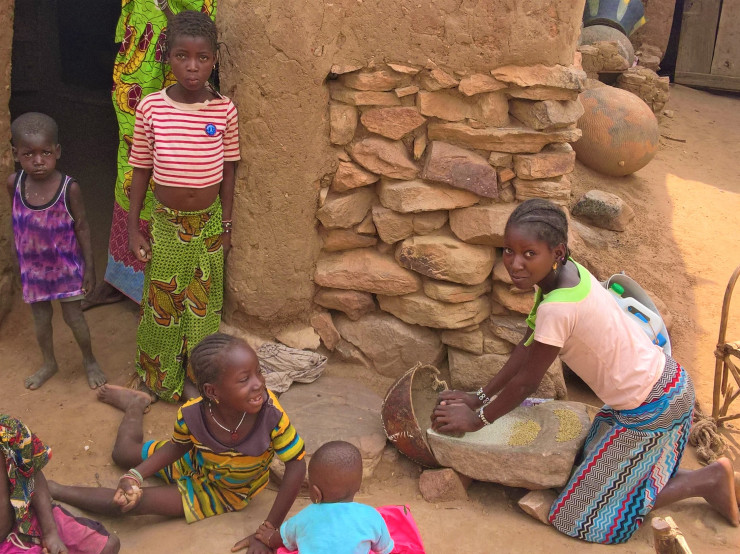
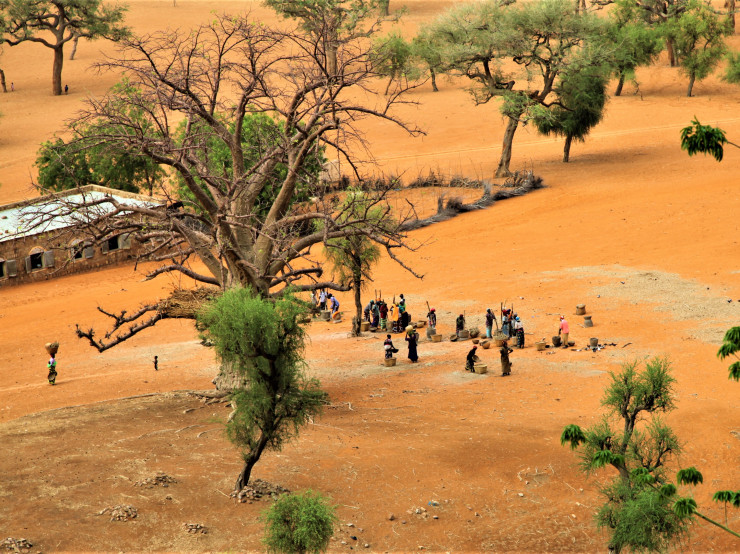
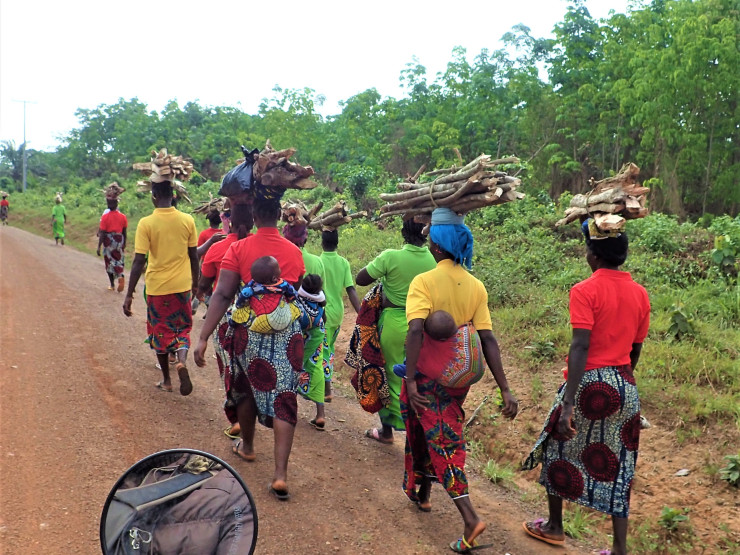
Imagine, Kim, if mom and dad gave Doug and me a bowl on a string, kicked us out of the house, and told us to beg for food on our own. Who are the toughest of all West Africans? The bakroman or street children.
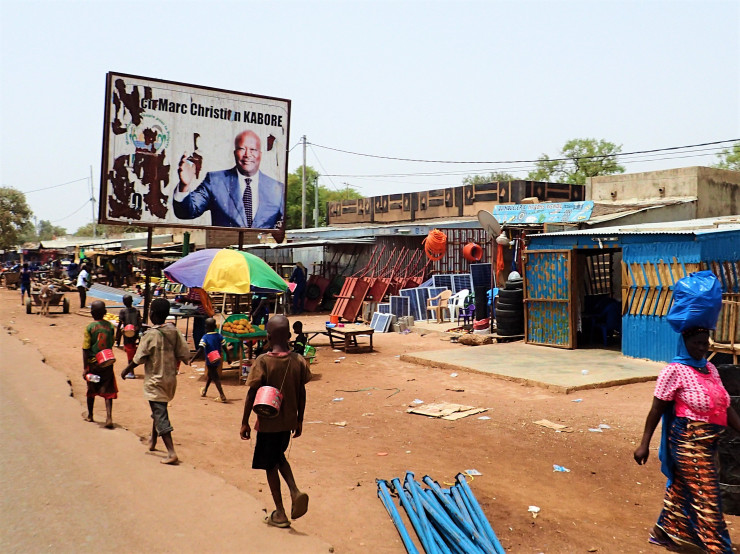
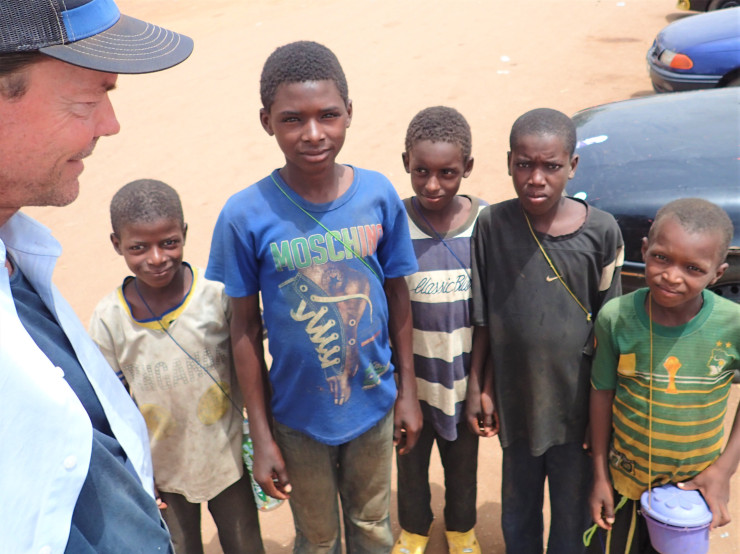
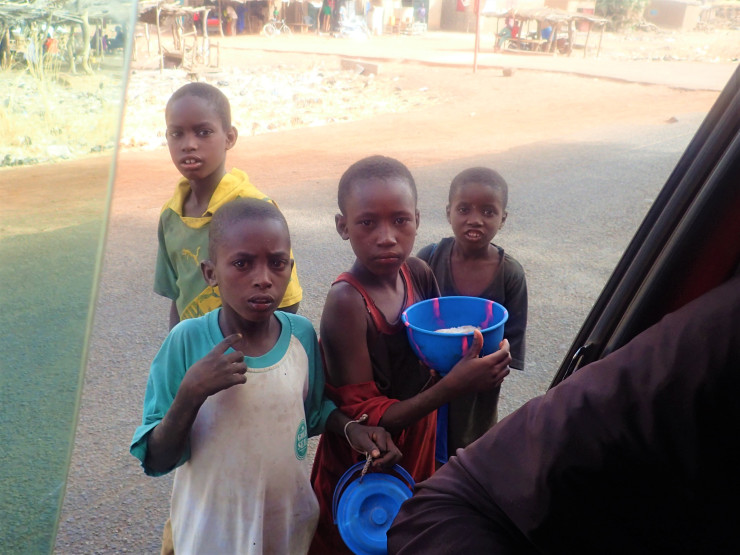
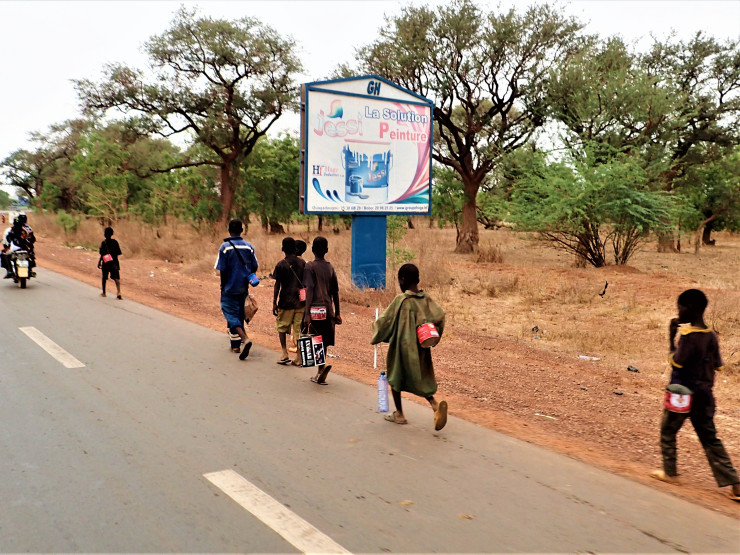
It’s official, Kim, West Africans are the toughest people on the planet. Traveling with these locals made me tougher and I learned how to travel like a big boy. I’m more grateful for everything I have back home. The words comfort and convenience have new meaning for me. People like Tupee, Solomon, and the bakroman taught me to appreciate my good fortune. KV


